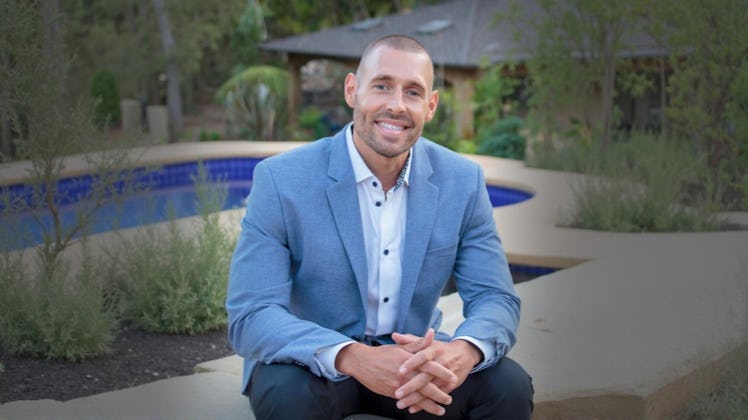Your Child Might Need A Therapist — Just Not the Kind You Think
Why Some Kids Aren’t Thriving in School, and How Whole-Child Educational Therapy Is Empowering Children.

You’ve checked their backpack. You’ve monitored their screen time. You’ve tried motivational speeches, tutoring apps, and positive reinforcement charts on the fridge. But your child is still falling behind, zoning out, or shutting down. The homework doesn’t get done. The spark is gone. You start to wonder whether they are just unmotivated, or is something deeper happening?
Frustrating as this may be, experts say it’s time to expand your support network.
“Many parents initially assume their child needs more discipline, more push, or stronger motivation,” says Kevin Bansley, MA, ET/P, founder of South Bay Educational Therapy (SBET) in Los Angeles. “In reality, what many students truly require is a more targeted form of support; an intervention aimed at underlying cognitive and emotional barriers, that teaches them how to learn, and gradually rebuilds self-belief. That’s when the real transformation begins.”
Educational therapy is frequently the missing piece to helping children who struggle. It’s how they can be supported not only in school, but in their thought processes, focusing, and even in how they perceive the world around them.
When Bright Kids Struggle
Your child may be intelligent — even gifted —but intellect alone doesn’t guarantee emotional regulation or strong executive functioning skills. When those systems are underdeveloped, even routine tasks can feel overwhelming. That tension often reveals itself through avoidance, resistance, or "bad behavior."
“When a child is disorganized, withdrawn, or shuts down, it’s not defiance — it’s self-preservation,” Bansley explains. “These behaviors are the emotional armor of a child who’s doing the best they can with what they have.”
What Makes Educational Therapy Different?
Educational therapy is clinical, evidence-based, and deeply personalized to meet your child where they are, so they can develop the mental building blocks to become lifelong learners.
Unlike tutors and traditional classroom environments, educational therapists use research-backed strategies tailored to learning differences to create personalized treatment plans that support both cognitive and emotional development. This whole-child approach equips your child with executive-functioning skills such as planning, sequencing, and time management, which can be applied across subjects, future careers, and social environments.
“The biggest change we saw in our child was his independence. And for us, that changed everything — we stopped feeling like we were constantly hovering. It brought so much peace back into our home.”
Educational therapists collaborate closely with a trusted network of allied professionals, including neuropsychologists, speech-language pathologists, and behavioral specialists. This hands-on approach means you’re not alone in facing the system; you have experts by your side every step of the way, vouching and actively encouraging your child’s success.
Why It’s Working: Real Results, Real Stories
South Bay Educational Therapy is quietly setting a new standard for results-driven intervention. With deep specialization and a team known for depth, clarity, and compassion, SBET has become the trusted choice for families seeking support.
Their programs have led to noticeable improvements in reading, emotional regulation, and self-confidence, often within a short period — reshaping outcomes for students who might otherwise slip through the cracks.
Kids who once refused to read are now finishing chapter books. Students who couldn’t organize a backpack are managing weekly project deadlines. Fathers report seeing their children’s confidence and independence soar.
“We’re building a child’s self-concept and reshaping how they interpret challenges,” Bansley confirms.
For Dads: What You Can Do Right Now
As a father, you want your child to succeed, and you want to know the help you’re getting is the best. SBET’s approach is about unlocking potential, not labeling or pathologizing your child.
“ADHD, dyslexia, executive dysfunction — none of these are character flaws,” Bansley explains. “When a child is repeatedly asked to operate in a system that doesn’t reflect how they process, retain, or apply information, it leads to burnout—not because they lack ability, but because the approach or environment isn’t aligned with their cognitive profile.”
If your child is struggling with literacy, organization, anxiety, or motivation, here are a few ways to start supporting them today:
● Observe, don’t assume: Notice where the breakdown is happening. Is it starting tasks? Remembering instructions? Managing frustration?
● Reframe your questions: Instead of “Why didn’t you do this?” try: “What part felt tricky or confusing?”
● Get curious about capacity: Is your child resisting because they’re bored or because they’re overwhelmed?
● Explore professional support: Educational therapy may be the bridge between school expectations and your child’s actual needs, and it makes parent-teacher interviews a whole lot easier for the whole family.
At the end of the day, the goal isn’t straight A's. It’s a child who feels seen, supported, and confident in their own growth. And sometimes, all they need is someone who understands how they learn.
Want To Learn More?
Visit South Bay Educational Therapy’s website to schedule a consultation or access free parent resources on executive functioning, literacy support, and more. Even if you're unsure, a consultation can offer clarity — and open the door to a brighter future for your child.
This article is for informational purposes only and does not substitute for professional medical advice. If you are seeking medical advice, diagnosis, or treatment, please consult a medical professional or healthcare provider.
BDG Media newsroom and editorial staff were not involved in the creation of this content.